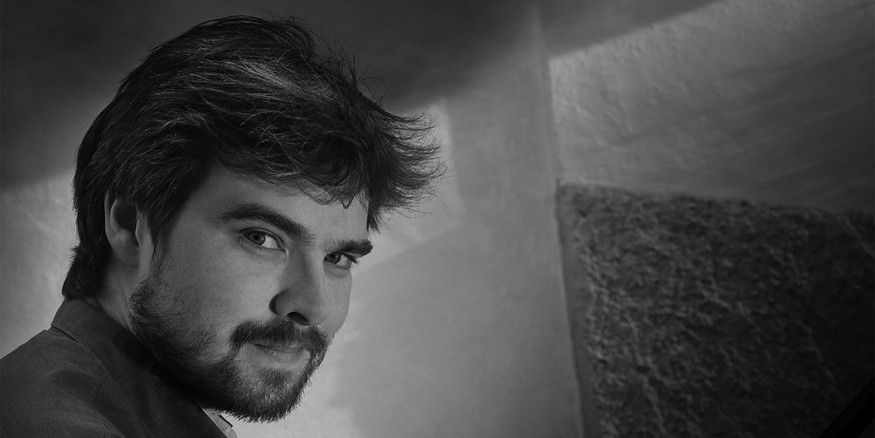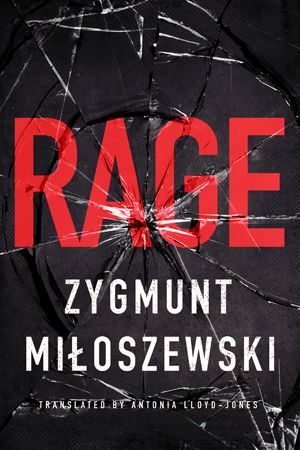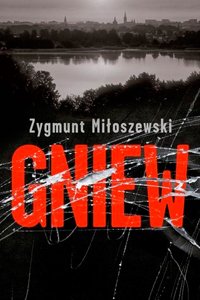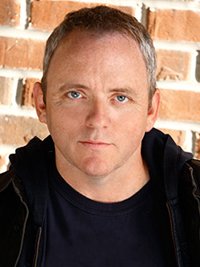
We’d love to see a lot more mysteries from the former Eastern Bloc here on Crime Fiction Lover, and one of the authors leading the way is Poland’s Zygmunt Miloszewski. The Warsaw-based author has been gradually building up his reputation with English language readers and his third novel, Rage, is due out on 1 August. It’s been translated by Amazon Crossing. The book is set in picturesque city of Olsztyn, and in it local prosecutor Teodor Szacki has his investigative skills challenged when a skeleton turns up in an underground vault. At first, they think it’s the remains of a German locked down there since the end of World War II, but soon the evidence points in another direction. We invited Zygmunt to join us on the metaphorical CFL sofa for a chat about his work and his new book…
What led you to become a crime writer?
I was born and raised in Warsaw, aka Europe’s ugliest capital city. Unfortunately, I’m still living here. I’m married, with two kids, one of whom already has a tattoo. Reading was always my number one favourite activity, and my greatest pleasure and greatest adventure, though it slipped to number two once I discovered sex. Regrettably, making a living out of sex is either tiring or illegal, so I decided to become a writer, imagining it was going to be just as great a pleasure and adventure as reading. Well, I was entirely wrong – writing doesn’t come anywhere near reading, not to mention sex. But it seemed I did know how to do it. After a horror story and a children’s fairy tale I decided to write a crime novel. At the time I had just fallen for Henning Mankell and his books, and I was amazed that such engaging crime stories could also provide such profound social commentary. I wanted to write the same sort of thing about Poland.

What do you hope crime fiction lovers will love about Rage?
That’s a tough question. Each reader reads a different novel, each reader has their favourite characters, their least favourite twists in the plot, and features for which they love or hate the author. I wanted this book to be a truthful depiction of violence against women, to show how domestic abuse is woven into the tissue of society. I wanted to let my readers decide for themselves whether they’d prefer to side with the law or with justice. I hope they’ll like the structure of this novel. It starts with a murder committed by the main character, after which there’s a 10-day flashback, so instead of guessing why and by whom someone has been murdered, we have to guess who’s going to be killed by the main character, and why.
Tell us a bit about Szacki – what is he like as a detective?
He’s a prosecutor, which in the Polish legal system means that he supervises investigations led by the police and gathers the evidence that will enable him to take each case to court. He’s a detective, but also a highly trained lawyer and civil servant. Unlike the traditional protagonists in crime fiction he doesn’t wear a leather jacket, he doesn’t booze and he’s in a stable relationship. He’s cool, ironic, and distant, hidden behind the penal code and all sorts of legal procedures. But he also has this rage boiling inside him that energises him.

And who’s he trying to track down in Rage?
It all starts when Szacki has the job of ‘checking off a German’, which in the part of Poland that belonged to Germany before World War II means finding an old cadaver that presumably dates back to the German era. In this case, a skeleton that at first sight appears to be decades old turns out to have belonged to a man who went missing just 10 days ago. How could that be possible? Who did it? How, and why? And what might this crime have to do with vigilante justice brought upon domestic abusers?
What made you want to tackle the issue of domestic violence and what are some of the ways in which it comes through in the story?
Originally, I planned to write about a different topic, which was the way each European nation plays the history game, using all sorts of dirty tricks and lies in order to prove their own symbolic superiority. As I was browsing through the local papers in a library looking for ideas I found some articles on domestic abuse. I started talking to people about it, and I realised that even though I’m a well-educated leftist, even though my wife’s a feminist, and even though I’ve always been opposed to various forms of discrimination, I knew nothing about violence against women. And I decided it was a much more important topic than the murky depths of European history.
Szacki is a prosecutor – in the UK and US prosecutors don’t investigate crimes in the same way. So what does he do, exactly?
I didn’t know anything about prosecutors until at the age of 20 I got a job as a newspaper reporter and was sent to court to report on the trials. There I found out that a prosecutor’s job is much closer to the work of a fictional detective than that of a policeman. The typical cop wants to catch the criminal and then go for a beer. For the prosecutor that’s only the start of it. For him, the evidence is crucial. Without proper evidence, justice can never be done. Think about Columbo, the TV show. We always knew who the killer was from the start, but we were glued to the screen, just to see how Columbo would manage to nail the guy.

Which other crime authors have inspired you?
Henning Mankell, as I have already explained. I like Dennis Lehane (pictured) for his characters’ sarcastic wit. And Pierre Lemaitre for his literary qualities and amazing plot construction – the French author has invented a genre of his own, instead of following any of the previously charted and by now extremely crowded paths.
Is crime fiction an emerging genre in Poland?
I wouldn’t call it an emerging genre. As everywhere, it’s one of the most popular and eagerly read forms of literature, and it always has been. However, for many years after the fall of the wall, the Poles wanted to read translated crime fiction, even of the lowest quality, because it was Western, and Western was better; Western is how we have always wanted to be described. But time passed, we started to catch up, and developed an appetite for our local literature, including local crime fiction set within the world as we knew and experienced it. Now Polish crime writing is flourishing and includes some excellent writers, so I truly hope the wave of Slavic corpses will wash away the Nordic ones.
What’s next for you?
I stopped writing crime fiction after completing the Szacki trilogy, because I think it’s always better to stop too soon rather than too late. Now I’m working on a novel about an old couple who get to live their life again, in a slightly alternative version of European history.
Rage by Zygmunt Miloszewski is out as a paperback on 1 August at £8.99. Order your copy below. For more Euro noir, click here.









